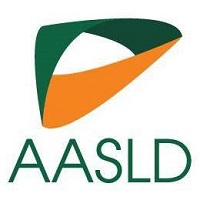 People seeking insurance coverage of hepatitis C virus (HCV) treatment are much more likely to be denied if they have Medicaid rather than Medicare or private insurance. Those without cirrhosis as well as individuals coinfected with HIV are also more likely to receive a denial. Researchers conducted a prospective cohort study of 2,350 people with hep C who were prescribed treatment for the virus and submitted the prescription to two specialty pharmacies serving Pennsylvania, New Jersey, Delaware and Maryland between November 2014 and April 2015.
People seeking insurance coverage of hepatitis C virus (HCV) treatment are much more likely to be denied if they have Medicaid rather than Medicare or private insurance. Those without cirrhosis as well as individuals coinfected with HIV are also more likely to receive a denial. Researchers conducted a prospective cohort study of 2,350 people with hep C who were prescribed treatment for the virus and submitted the prescription to two specialty pharmacies serving Pennsylvania, New Jersey, Delaware and Maryland between November 2014 and April 2015.
The study was submitted as a late-breaking abstract at the annual meeting of the American Association for the Study of Liver Diseases (AASLD) in San Francisco.
A total of 504 of the individuals had Medicaid coverage, 810 had Medicare, and 1,036 had private insurance.
Out of the entire group, 16 percent (375 people) were denied coverage, even if they appealed the decision. Broken down by genotypes 1, 2 and 3, the respective denial rates were 15.2 percent, 17.7 percent and 31.6 percent.
The most common reasons for denial were insufficient information to assess medical need, accounting for 35.5 percent (133) of the denials; lack of medical necessity, at 33.3 percent (125) of the denials; and a positive drug or alcohol screen, at 4 percent (15) of the denials.
Forty-six percent (232) of the people with Medicaid were denied coverage, while just 4.9 percent (40) of those with Medicare and 9.9 percent (103) of those with private insurance received denials.
After adjusting the data for various factors, the researchers found that having Medicaid as opposed to another form of insurance increased the odds of a denial 8.97 fold, lacking cirrhosis increased the odds 3.7 fold, and being coinfected with HIV increased the odds 3.31 fold.
The median time between submitting the prescription to the pharmacy and having it filled was 23 days among those with Medicaid and 14 days for both those with Medicare and those with private insurance.

Thinkstock






Comments
Comments